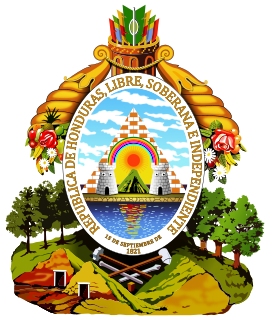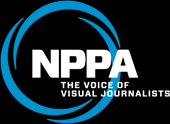Agency for International Development v. Alliance for Open Society International may refer to either of two United States Supreme Court cases:

Politics of Honduras takes place in a framework of a multi-party system presidential representative democratic republic. The President of Honduras is both head of state and head of government. Executive power is exercised by the government. Legislative power is vested in the National Congress of Honduras. The party system is dominated by the conservative National Party of Honduras and the Liberal Party of Honduras. The Judiciary is independent of the executive and the legislature.
Jurisdiction is the legal term for the authority granted to a legal entity to enact justice. Colloquially it is used to refer to the geographical area. In federations like the United States, areas of jurisdiction apply to local, state, and federal levels.

The First Amendment to the United States Constitution prevents the government from making laws which regulate an establishment of religion, or that would prohibit the free exercise of religion, or abridge the freedom of speech, the freedom of the press, the freedom of assembly, or the right to petition the government for redress of grievances. It was adopted on December 15, 1791, as one of the ten amendments that constitute the Bill of Rights.
The United States Agency for International Development (USAID) is an independent agency of the United States federal government that is primarily responsible for administering civilian foreign aid and development assistance. With a budget of over $27 billion, USAID is one of the largest official aid agencies in the world and accounts for more than half of all U.S. foreign assistance—the highest in the world in absolute dollar terms.

The Federalist Society for Law and Public Policy Studies, most frequently called the Federalist Society, is an American organization of conservatives and libertarians that advocates for a textualist and originalist interpretation of the United States Constitution. It features a student division, a lawyers division, and a faculty division. The society currently has chapters at more than 200 American law schools. The lawyers division comprises more than 70,000 practicing attorneys in ninety cities. The society is headquartered in Washington, D.C. Through speaking events, lectures, and other activities, it provides a forum for legal experts of opposing views to interact with members of the legal profession, the judiciary, and the legal academy. It is one of the United States' most influential legal organizations.
Collective bargaining is a process of negotiation between employers and a group of employees aimed at agreements to regulate working salaries, working conditions, benefits, and other aspects of workers' compensation and rights for workers. The interests of the employees are commonly presented by representatives of a trade union to which the employees belong. The collective agreements reached by these negotiations usually set out wage scales, working hours, training, health and safety, overtime, grievance mechanisms, and rights to participate in workplace or company affairs.
GLBTQ Legal Advocates & Defenders (GLAD) is a non-profit legal rights organization in the United States. The organization works to end discrimination based on sexual orientation, HIV status, and gender identity and expression. The organization primarily achieves this goal through litigation, advocacy, and education work in all areas of LGBT rights and the rights of people living with HIV. In addition, GLAD operates a legal information line, GLAD Answers, where LGBTQ & HIV+ residents of New England can receive attorney referrals and information about their rights. The organization changed its name to GLBTQ Legal Advocates & Defenders in February 2016.

In the United States, freedom of speech and expression is restricted by time, place and manner— though otherwise strongly protected from government restrictions by the First Amendment to the United States Constitution, many state constitutions, and state and federal laws. Freedom of speech, also called free speech, means the free and public expression of opinions without censorship, interference and restraint by the government. The term "freedom of speech" embedded in the First Amendment encompasses the decision what to say as well as what not to say. The Supreme Court of the United States has recognized several categories of speech that are given lesser or no protection by the First Amendment and has recognized that governments may enact reasonable time, place, or manner restrictions on speech. The First Amendment's constitutional right of free speech, which is applicable to state and local governments under the incorporation doctrine, prevents only government restrictions on speech, not restrictions imposed by private individuals or businesses unless they are acting on behalf of the government. However, laws may restrict the ability of private businesses and individuals from restricting the speech of others, such as employment laws that restrict employers' ability to prevent employees from disclosing their salary to coworkers or attempting to organize a labor union.
Alliance Defending Freedom is an American conservative Christian nonprofit advocacy group. ADF is headquartered in Scottsdale, Arizona. It also has four branch offices located in Folsom, California; Washington, D.C.; Lawrenceville, Georgia; and New York.
Pathfinder International, based in Watertown, Massachusetts, US, is a global non-profit organization 501(c)(3) that focuses on reproductive health, family planning, HIV/AIDS prevention and care, and maternal health. The organization operates in more than 15 low- and middle-income countries in Africa and South Asia. According to its website, "Pathfinder is driven by the conviction that all people, regardless of where they live, have the right to decide whether and when to have children, to exist free from fear and stigma, and to lead the lives they choose."

David Brookman Smith, known professionally as D. Brooks Smith, is a Senior United States Circuit Judge of the United States Court of Appeals for the Third Circuit. He was previously Chief Judge of both the United States Court of Appeals for the Third Circuit and the United States District Court for the Western District of Pennsylvania, and is the only judge in the history of the Third Circuit to have served as both a chief district judge and chief of the Court of Appeals. Beginning January 2022, Smith will begin to serve as Penn State Law's new jurist in residence.

The National Press Photographers Association (NPPA) is an American professional association made up of still photographers, television videographers, editors, and students in the journalism field. Founded in 1946, the organization is based in at the Grady College of Journalism and Mass Communication at the University of Georgia. The NPPA places emphasis on photojournalism, or journalism that presents a story through the use of photographs or moving pictures. The NPPA holds annual competitions as well as several quarterly contests, seminars, and workshops designed to stimulate personal growth in its members. It utilizes a mentor program which offers its members the opportunity to establish a relationship with a veteran NPPA member and learn from them. The organization also offers a critique service, a job bank, an online discussion board, and various member benefits.

Bolivia–United States relations were established in 1837 with the first ambassadorial visit from the United States to Peru–Bolivian Confederation. The Confederation dissolved in 1839, and bilateral relations did not occur until 1848 when the United States recognized Bolivia as a sovereign state and appointed John Appleton as the Chargé d'Affaires.
The Federal government of the United States requires certain non-governmental organizations (NGOs) that receive federal anti-HIV/AIDS or anti-trafficking funds to adopt an organization-wide policy opposing prostitution and sex-trafficking. This requirement, known as the anti-prostitution pledge, has been in place since 2003.
Alliance for Open Society International, Inc. (AOSI) is a U.S. public charity organized in 2003 under the laws of the State of Delaware.
Human rights in the United States comprise a series of rights which are legally protected by the Constitution of the United States, state constitutions, treaty and customary international law, legislation enacted by Congress and state legislatures, and state referenda and citizen's initiatives. The Federal Government has, through a ratified constitution, guaranteed unalienable rights to its citizens and non-citizens. These rights have evolved over time through constitutional amendments, legislation, and judicial precedent. Along with the rights themselves, the portion of the population granted these rights has expanded over time. Within the United States, federal courts have jurisdiction over international human rights laws.
Agency for International Development v. Alliance for Open Society International, Inc., 570 U.S. 205 (2013), also known as Alliance for Open Society I, was a United States Supreme Court decision in which the court ruled that conditions imposed on recipients of certain federal grants amounted to a restriction of freedom of speech and violated the First Amendment.
Fisher v. University of Texas may refer to either of two United States Supreme Court cases:
Agency for Int'l Development v. Alliance for Open Society International, 591 U.S. ___ (2020), also known as Alliance for Open Society II, was a United States Supreme Court case in which the Court held that compelled speech required as a condition for funding on foreign non-governmental affiliates of U.S. non-government organizations does not violate First Amendment rights.
Sackett v. Environmental Protection Agency may refer to either of two United States Supreme Court cases: